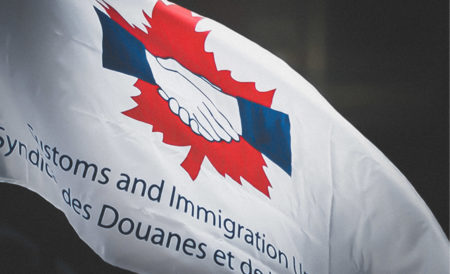Members of the Public Service Alliance of Canada (PSAC) and the Customs and Immigration Union (CIU) who work at Canada Border Services Agency (CBSA) will be conducting a strike vote across the country starting April 10, 2024.
After almost two years of negotiations, PSAC declared impasse in bargaining in September 2023 after CBSA refused to budge on key issues like wages in line with other law enforcement agencies, better job security, access to telework, and protections from contracting out.
“Workers at CBSA have waited long enough,” said Chris Aylward, PSAC national president. “Our members have been without a collective agreement since 2022. While wages have stalled and the cost of living has risen, CBSA has refused to negotiate an agreement that protects workers and continues to demand concessions at the bargaining table.”
While strike votes are underway, PSAC and CBSA are proceeding to Public Interest Commission (PIC) hearings April 10 and 22 with the Federal Public Sector Labour Relations and Employment Board.
Following the PIC hearings, the commission will release its non-binding recommendations to reach an agreement. If members vote in favour of a strike mandate, PSAC will be in a legal strike position seven days after the board releases its report.
Workers at CBSA are also still waiting for the government to make good on a pledge to provide CBSA law enforcement personnel with the same retirement benefits – 25 and out –as other law enforcement and public safety workers.
“If the government is serious about achieving a new collective agreement, Anita Anand, President of Treasury Board, must also honour the commitment made during the last round of bargaining and make equitable retirement a reality for our members,” said Mark Weber, CIU national president. “Law enforcement personnel at CBSA deserve the same treatment and retirement benefits as their counterparts in other law enforcement agencies.”
The Public Service Alliance of Canada is one of Canada’s largest unions, representing nearly 230,000 workers in every province and territory in Canada, including more than 120,000 federal public service workers employed by Treasury Board and another 45,000 working for federal government agencies, including Canada Border Services Agency.
This article was first posted on the PSAC website.






